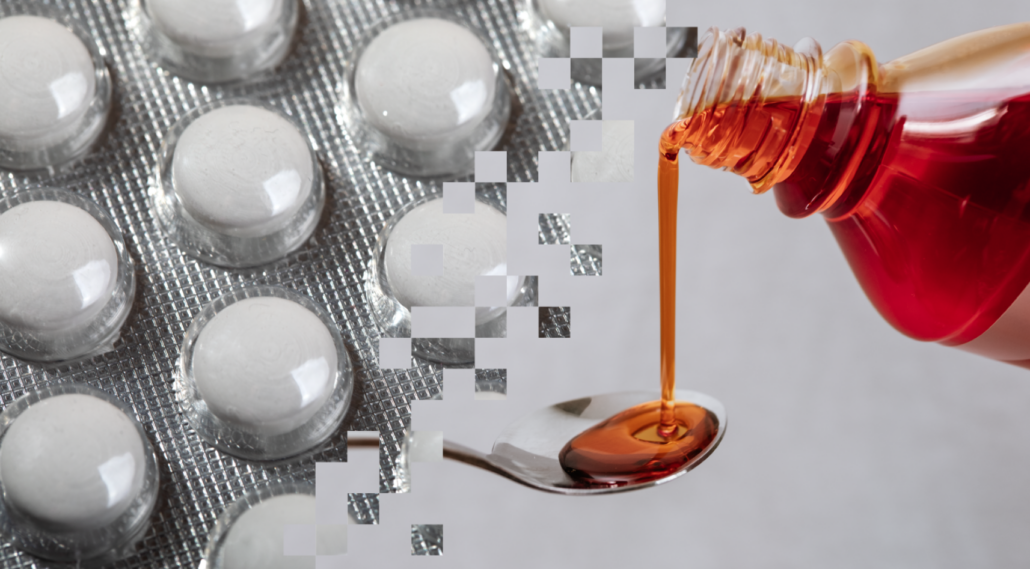We Level Up FL Treatment Center | Editor Yamilla Francese | Clinically Reviewed By Lauren Barry, LMFT, MCAP, QS, Director of Quality Assurance | Editorial Policy | Research Policy | Last Updated: August 4, 2023
Serotonin Syndrome Ruined My Life: Understanding Symptoms and Treatment
Serotonin, often called the “happy hormone,” is crucial in regulating mood, sleep, and overall well-being. However, excess serotonin in the body can lead to a potentially dangerous condition known as Serotonin Syndrome. This condition arises when serotonin levels spike to unsafe levels, causing many distressing symptoms. In this article, we will delve into the intricacies of Serotonin Syndrome, exploring its definition, common symptoms, and the treatment options available to manage this condition effectively.
When serotonin levels become too high, it can lead to a cluster of distressing symptoms. Common serotonin syndrome symptoms include agitation, confusion, rapid heart rate, high blood pressure, dilated pupils, increased sensitivity to light, excessive sweating, muscle stiffness, and twitching. In severe cases, it can progress to seizures and even life-threatening complications. Prompt recognition of these symptoms is crucial to seek immediate medical attention and prevent potential complications.
Whether you think that “serotonin syndrome ruined my life” or a loved one has experienced this challenging condition firsthand or seek knowledge about its implications, this comprehensive guide will provide valuable insights into Serotonin Syndrome’s effects, management, and potential road to recovery.
What is Serotonin Syndrome?
It is a rare but serious medical condition caused by an overabundance of serotonin in the central nervous system. Serotonin, a neurotransmitter responsible for transmitting signals between nerve cells, is typically metabolized and regulated by the body. However, certain medications, combinations of medications, or even natural supplements can disrupt this balance and lead to an excessive accumulation of serotonin.


Skip To:
Learn More:
Get Help. Get Better. Get Your Life Back.
Searching for Accredited Dual Diagnosis Mental Health Centers Near You?
Even if therapy failed previously, or are in the middle of a difficult crisis, we stand ready to support you. Our trusted behavioral health specialists will not give up on you. When you feel ready or just want someone to speak to about counseling alternatives to change your life call us. Even if we cannot assist you, we will lead you to wherever you can get support. There is no obligation. Call our hotline today.
FREE 24/7 Dual Diagnosis Mental Health Services HotlineSerotonin Syndrome Fact Sheet
What is Serotonin Syndrome? It is a rare but potentially life-threatening condition caused by an excessive accumulation of serotonin in the body. Serotonin, a neurotransmitter, plays a crucial role in regulating mood, appetite, sleep, and various bodily functions. When serotonin levels become too high, it can lead to a range of distressing symptoms that can affect the nervous system and other organs.
Causes: It typically occurs due to taking medications or substances that increase serotonin levels in the brain. This can happen due to the use of certain antidepressants (especially when combined), recreational drugs like MDMA (Ecstasy), migraine medications (triptans), and certain herbal supplements like St. John’s Wort.
Diagnosis: Diagnosing this syndrome can be challenging as its symptoms overlap with other medical conditions. Healthcare providers will typically review a patient’s medical history, current medications and observe their symptoms to make an accurate diagnosis.
Prevention: To prevent this syndrome, it’s crucial to inform healthcare providers about all the medications, supplements, and recreational drugs being taken. Patients should not abruptly stop or change their medications without consulting their healthcare provider, especially if they are on multiple medications that affect serotonin levels.
Serotonin Syndrome Statistics
By exploring the numbers behind this condition, we aim to foster awareness and promote better management of Serotonin Syndrome in clinical practice
- Incidence: It is considered a relatively rare condition. The incidence varies depending on factors such as the population being studied, the prevalence of medication usage, and the criteria used for diagnosis. It is estimated that the incidence of Serotonin Syndrome ranges from 1 to 10 cases per 100,000 person-years.
- Mortality: The mortality rate associated with this syndrome is relatively low, especially if the condition is identified and treated promptly. However, in severe cases where diagnosis and treatment are delayed or if there are complications, the mortality rate can be higher.
- Age and Gender: It can affect people of all ages and genders. There is no significant gender predilection for developing Serotonin Syndrome.
There were 26,733 exposures to SSRIs reported in 2004, of which 7.5 percent involved serotonin syndrome.
Source: Toxic Exposure Surveillance System
0.02 to 2.4%
The incidence of NMS varies with a range of 0.02 to 2.4 percent in patients being treated with neuroleptics.
Source: Strawn JR, Keck PE Jr, Caroff SN. Neuroleptic malignant syndrome.
5 and 11.6%
The mortality rate of NMS is between 5 and 11.6 percent, while the mortality rate of SS is less than 1 percent.
Source: Birmes P, Coppin D, Schmitt L, Lauque D. Serotonin syndrome: a brief review.
Serotonin Syndrome Symptoms
It typically occurs as a result of taking medications or substances that increase serotonin levels in the brain. This can happen due to the use of certain antidepressants (especially when combined), recreational drugs like MDMA (Ecstasy), migraine medications (triptans), and certain herbal supplements like St. John’s Wort.
Symptoms of Serotonin Syndrome can vary in severity and may include:
- Agitation and restlessness.
- Confusion and disorientation.
- Rapid heart rate and high blood pressure.
- Dilated pupils and increased sensitivity to light.
- Excessive sweating and shivering.
- Nausea, vomiting, and diarrhea.
- Muscle stiffness and twitching.
In severe cases, it can lead to seizures, unconsciousness, and even death if left untreated.

Serotonin Syndrome versus NMS
| Aspect | Serotonin Syndrome | Neuroleptic Malignant Syndrome |
|---|---|---|
| Cause | Excess serotonin | Antipsychotic medications |
| Neurotransmitter Involvement | Serotonin | Dopamine |
| Onset and Progression | Rapid onset | Gradual onset |
| Common Symptoms | Agitation, confusion, rapid heart rate, dilated pupils, excessive sweating, muscle stiffness, tremors | Muscle rigidity, high fever, altered mental status, autonomic instability, elevated creatine kinase levels |
| Treatment | Discontinuation of serotonergic medications, supportive care, medications to block serotonin receptors in severe cases | Immediate discontinuation of the offending antipsychotic medication, supportive care, muscle-relaxing medications |
| Prognosis | Generally favorable with prompt recognition and appropriate treatment | Generally favorable with prompt recognition and appropriate treatment, but NMS has a higher mortality rate |

End the Emotional Pain. Get Your Life Back.
Feeling Depressed, Anxious or Struggling with Mental Health Illness? Get Safe Comfortable Mental Health Dual Diagnosis High-Quality Therapy From Counselors That Care. Begin Your Recovery Now.
Hotline (855) 940-6125Signs of Serotonin Syndrome
- Agitation and Restlessness: Individuals with Serotonin Syndrome may exhibit heightened agitation and restlessness, feeling unusually anxious and unable to stay still.
- Confusion and Disorientation: It can lead to mental confusion, difficulty concentrating, and disorientation in time and space.
- Rapid Heart Rate (Tachycardia) and High Blood Pressure: Increased serotonin levels can cause the heart to beat faster than usual and elevate blood pressure.
- Dilated Pupils (Mydriasis): The pupils may appear larger than usual due to the effects of excess serotonin on the autonomic nervous system.
- Excessive Sweating (Diaphoresis): Individuals may experience profuse sweating, even in relaxed environments, due to the body’s response to increased serotonin.
- Muscle Stiffness and Tremors: Serotonin can influence muscle tone, leading to stiffness and tremors in affected individuals.
- Shivering and Uncontrolled Muscle Movements (Myoclonus): Uncontrollable jerking or twitching of muscles, known as myoclonus, can occur due to heightened serotonin levels.
- Nausea, Vomiting, and Diarrhea: Gastrointestinal disturbances, such as nausea, vomiting, and diarrhea, are common symptoms.
- Elevated Body Temperature (Hyperthermia): An increase in body temperature, known as hyperthermia, is a hallmark symptom of severe Serotonin Syndrome. This can be accompanied by fever.
- Fluctuations in Blood Pressure: It may cause fluctuations in blood pressure, leading to episodes of hypertension or hypotension.
- Rapid Breathing (Tachypnea): An increased respiratory rate, known as tachypnea, can occur due to the body’s response to elevated serotonin levels.
- Headache and Dizziness: Some individuals with this syndrome may experience headaches and feelings of dizziness or lightheadedness.
- Changes in Mental Status and Mood: Serotonin’s effects on the brain can lead to changes in mental status, including altered consciousness and shifts in mood.
- Increased Sensitivity to Light (Photophobia): Individuals with this syndrome may become more sensitive to light, experiencing discomfort in brightly lit environments.
- Hallucinations and Delirium (in severe cases): In severe cases, individuals may experience hallucinations, delirium, and even loss of consciousness.
Drugs that Cause Serotonin Syndrome
It can occur when there is an excessive accumulation of serotonin in the body, typically resulting from certain medications or substances that affect serotonin levels. It is essential to understand that not everyone who takes these drugs will develop this syndrome. Still, the risk increases when multiple serotonin-affecting substances are combined or when doses are unusually high.
Some of the drugs and substances that can potentially cause or contribute to this syndrome include:
- Selective Serotonin Reuptake Inhibitors (SSRIs): Commonly prescribed antidepressants like fluoxetine (Prozac), sertraline (Zoloft), and paroxetine (Paxil).
- Serotonin and Norepinephrine Reuptake Inhibitors (SNRIs): Antidepressants such as venlafaxine (Effexor) and duloxetine (Cymbalta).
- Monoamine Oxidase Inhibitors (MAOIs): Antidepressants like phenelzine (Nardil) and tranylcypromine (Parnate). MAOIs are known for their potential to interact dangerously with other drugs and substances.
- Tricyclic Antidepressants (TCAs): Older antidepressants like amitriptyline (Elavil) and imipramine (Tofranil).
- Atypical Antidepressants include bupropion (Wellbutrin) and mirtazapine (Remeron).
- Migraine Medications: Triptans like sumatriptan (Imitrex) and antidepressants like trazodone (Desyrel) may contribute to this syndrome.
- Pain Medications: Opioids like tramadol (Ultram) and meperidine (Demerol) may have serotoninergic effects.
- Recreational Drugs: Substances such as MDMA (Ecstasy) and LSD can increase serotonin levels and contribute to this.
- Herbal Supplements: St. John’s Wort affects serotonin levels and may interact with other medications.
- Anti-nausea Medications: Ondansetron (Zofran) and other 5-HT3 receptor antagonists for nausea and vomiting control can increase serotonin levels.
Individuals must inform their healthcare providers about all medications, supplements, and recreational drugs they are taking to prevent potential interactions and minimize the risks. If a person experiences symptoms suggestive of this syndrome, they should seek immediate medical attention for proper evaluation and treatment.
First-class Facilities & Amenities
World-class High-Quality Mental Health Services & Behavioral Health Substance Abuse Treatment
Rehab Centers TourRenowned Mental Health Centers. Serene Private Facilities. Inpatient Rehab Programs Vary.
Mental Health Helpline (855) 940-6125Proven recovery success experience, backed by a Team w/ History of:
15+
Years of Unified Experience
100s
5-Star Reviews Across Our Centers
10K
Recovery Successes
- Comprehensive Dual-Diagnosis Treatment
- Complimentary Family & Alumni Programs
- Coaching, Recovery & Development Events
- Comfortable Onsite Medical Detox Center
Symptoms of Serotonin Syndrome
It is characterized by a cluster of symptoms that arise from an excess of serotonin in the body. The mild serotonin syndrome symptoms can vary in severity and may include:
- Agitation and Restlessness: A feeling of unease, nervousness, and restlessness, which may lead to pacing or constant movement.
- Confusion and Disorientation: Mental confusion, difficulty concentrating, and disorientation in time and space.
- Rapid Heart Rate and High Blood Pressure: Increased heart rate (tachycardia) and elevated blood pressure can concern cardiovascular health.
- Dilated Pupils and Increased Sensitivity to Light: Pupils may appear larger than usual, and individuals may become more sensitive to light (photophobia).
- Excessive Sweating and Shivering: Profuse sweating and shivering may occur due to the body’s efforts to regulate its temperature.
- Nausea, Vomiting, and Diarrhea: Gastrointestinal disturbances, such as nausea, vomiting, and diarrhea, are common symptoms.
- Muscle Stiffness and Twitching: Increased muscle tone and involuntary muscle twitching or jerking (myoclonus) may be present.
- Fever: Elevated body temperature (hyperthermia) is a hallmark of severe symptoms.
In severe cases, It can lead to life-threatening symptoms, including:
- Seizures: Uncontrolled electrical activity in the brain, resulting in seizures or convulsions.
- Loss of Consciousness: A state of being unconscious and unresponsive.
- Organ Dysfunction: In severe instances, It can cause dysfunction of organs such as the heart, lungs, and kidneys.
It is essential to recognize these symptoms promptly and seek immediate medical attention if this syndrome is suspected. The condition can escalate rapidly, and early intervention is crucial to prevent severe complications. Individuals taking multiple medications or using substances that affect serotonin levels should be vigilant about these symptoms and report any concerns to their healthcare provider.
World-class, Accredited, 5-Star Reviewed, Effective Mental Health Dual Diagnosis Programs. Complete Integrated Inpatient Rehab with Free Post Discharge Therapy Planning.
CALL (855) 940-6125End the Emotional Pain Rollercoaster. Gain Stability & Happiness Through Recovery Treatment. Start Mental Health Counseling Today. Get Free No-obligation Guidance by Behaviroal Health Specialists Who Understand Mental Health Recovery.
Cyproheptadine Serotonin Syndrome
Cyproheptadine is an antihistamine medication sometimes used off-label to help manage symptoms. It is caused by excessive levels of serotonin in the body, and cyproheptadine is believed to work by blocking the effects of serotonin at specific receptors, helping to counteract the serotonin overload.

The exact mechanism of how cyproheptadine helps is not fully understood, and its use for this purpose is considered off-label, meaning it is not the primary intended use approved by regulatory authorities.
It’s important to note that seeking immediate medical attention is essential if you suspect you or someone else may have this syndrome. The condition can be life-threatening, and healthcare professionals should guide treatment based on the individual’s specific situation and symptoms.
As with any medication, cyproheptadine should be discussed with a qualified healthcare provider, and its potential benefits and risks should be carefully evaluated in the context of the individual’s overall health and medical history. Never take medication, including cyproheptadine, without proper medical supervision and guidance.
How to Treat Serotonin Syndrome
The treatment approach may vary depending on the severity of the condition and the specific symptoms experienced by the individual. It is essential to seek immediate medical attention if this syndrome is suspected, as early intervention can prevent complications and improve outcomes.
- Discontinue Serotonergic Medications: The first and most crucial step in treating this is to stop taking any medications or substances that may be contributing to the excessive serotonin levels. This often includes antidepressants, migraine medications (triptans), certain pain medications, and recreational drugs that affect serotonin.
- Supportive Care: Supportive care is essential in managing the symptoms. This may include measures to control fever (e.g., using cooling blankets), maintaining hydration with intravenous fluids, and addressing other specific symptoms like agitation or muscle stiffness.
- Medications to Block Serotonin: In severe cases where symptoms are not adequately controlled with supportive care, medications that directly block serotonin receptors may be administered. One such medication used in this context is cyproheptadine.
- Monitoring and Observation: Patients need close monitoring and observation, especially if their condition is moderate to severe. Frequent vital sign assessments, neurological evaluations, and other relevant tests help healthcare providers gauge the individual’s response to treatment.
- Individualized Care: The treatment approach should be tailored to the individual’s specific symptoms, medical history, and overall health. In some cases, additional medications or interventions may be necessary to address any complications.
- Collaboration with Specialists: In severe cases, consultation with specialists, such as toxicologists or intensivists, may be required to ensure comprehensive management and expert guidance.
Experience Transformative Recovery at the We Level Up Treatment Center.
See our authentic success stories. Get inspired. Get the help you deserve.



Start a New Life
Begin with a free call to a behavioral health treatment advisor. Learn more about our dual-diagnosis programs. The We Level Up treatment center network delivers recovery programs that vary by each treatment facility. Call to learn more.
- Personalized Care
- Caring Accountable Staff
- World-class Amenities
- Licensed & Accredited
- Renowned w/ 5-Star Reviews
We’ll Call You
Serotonin Syndrome FAQs
-
Does serotonin syndrome go away naturally?
No, it does not go away naturally and requires medical treatment.
-
What causes serotonin syndrome?
It is caused by an excessive accumulation of serotonin in the body, often resulting from using medications or substances that affect serotonin levels.
-
What is the antidepressant least likely to cause serotonin syndrome?
Bupropion (Wellbutrin) is an antidepressant least likely to cause this, as it primarily acts on dopamine and norepinephrine rather than serotonin.
8 Steps & Tips for Maintaining Your Mental Wellbeing Informative Video
Video Script
We at We Level Up FL are dedicated to personalized mental health services tailored to each person’s unique needs. Our experienced team collaborates closely with clients to create therapy programs that address their challenges and align with their goals. With empathy and support, we empower individuals to take an active role in their mental health journey by providing tools and strategies. We encourage exploration, self-discovery, and growth in a safe and nurturing environment. We understand that everyone is different, so we listen attentively and develop customized therapy plans based on individual concerns, strengths, and aspirations.
Search Drug & Alcohol Rehab / Detox & Mental Health Serotonin Syndrome Ruined My Life. Symptoms & Treatment Topics & Resources
Sources
- Serotonin syndrome: A complex but easily avoidable condition – https://www.ncbi.nlm.nih.gov/pmc/articles/PMC4933717/
- Serotonin Syndrome: Pathophysiology, Clinical Features, Management, and Potential Future Directions – https://www.ncbi.nlm.nih.gov/pmc/articles/PMC5752563/
- Serotonin Syndrome: Preventing, Recognizing, and Treating It – https://www.ncbi.nlm.nih.gov/pmc/articles/PMC4911074/
- Serotonin Syndrome: Recognition, Treatment, and Prevention – https://www.ncbi.nlm.nih.gov/pmc/articles/PMC3419245/
- Serotonin Syndrome: A Case Report and Review of the Literature – https://www.ncbi.nlm.nih.gov/pmc/articles/PMC2748911/
- Serotonin Syndrome: A Case of Misdiagnosis – https://www.ncbi.nlm.nih.gov/pmc/articles/PMC3363299/
- Serotonin syndrome: Clinical presentation and management – https://www.ncbi.nlm.nih.gov/pmc/articles/PMC4988874/
- Serotonin Syndrome: Analysis of Cases Registered in the Spanish Pharmacovigilance Database – https://pubmed.ncbi.nlm.nih.gov/31400072/
- Serotonin Syndrome Induced by Concomitant Use of Linezolid and Sertraline – https://pubmed.ncbi.nlm.nih.gov/32897177/
- Serotonin Syndrome: A Potentially Life-Threatening Adverse Drug Reaction – https://pubmed.ncbi.nlm.nih.gov/29737662/